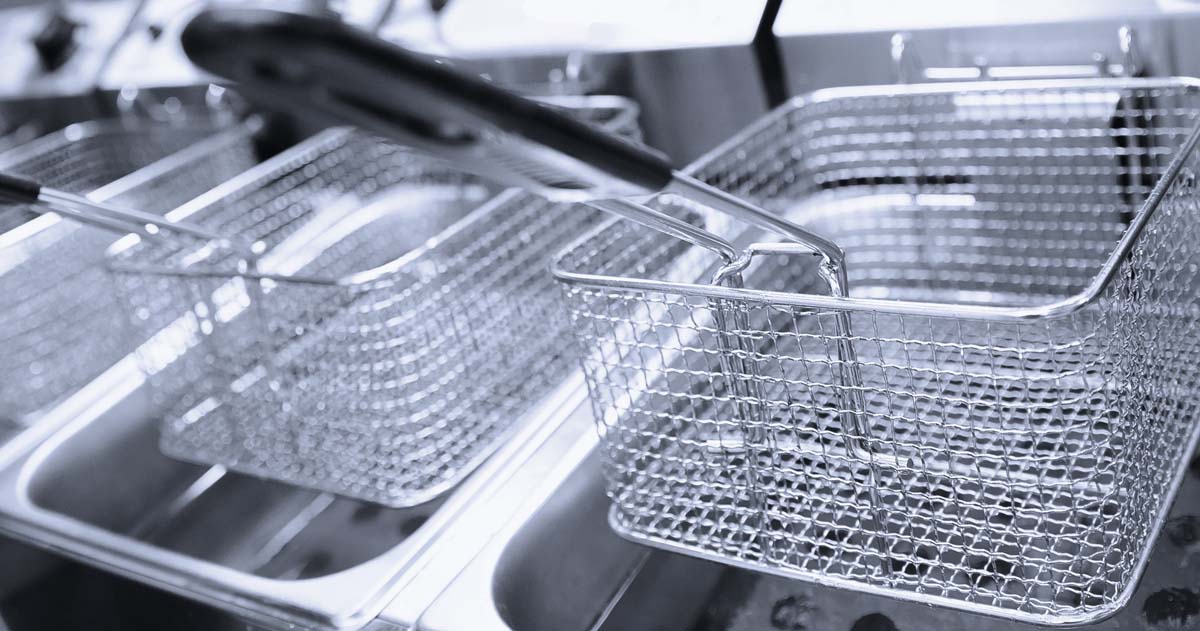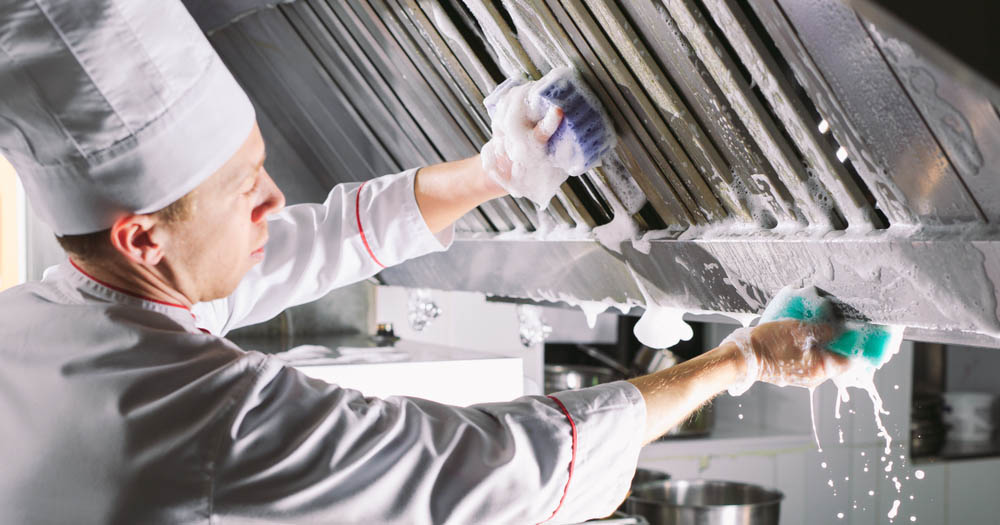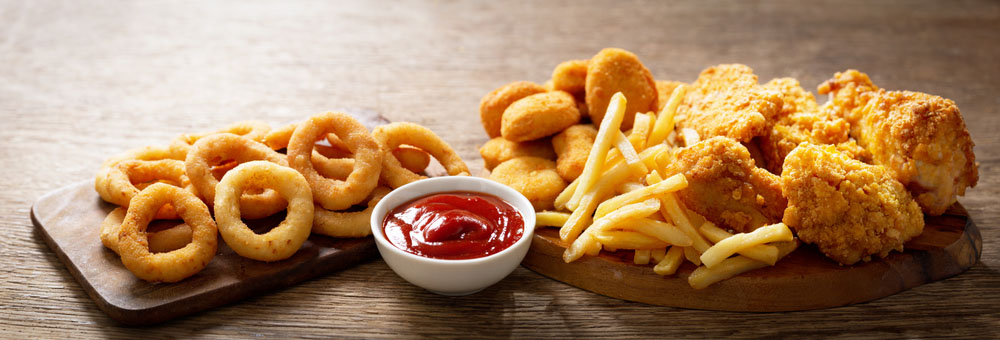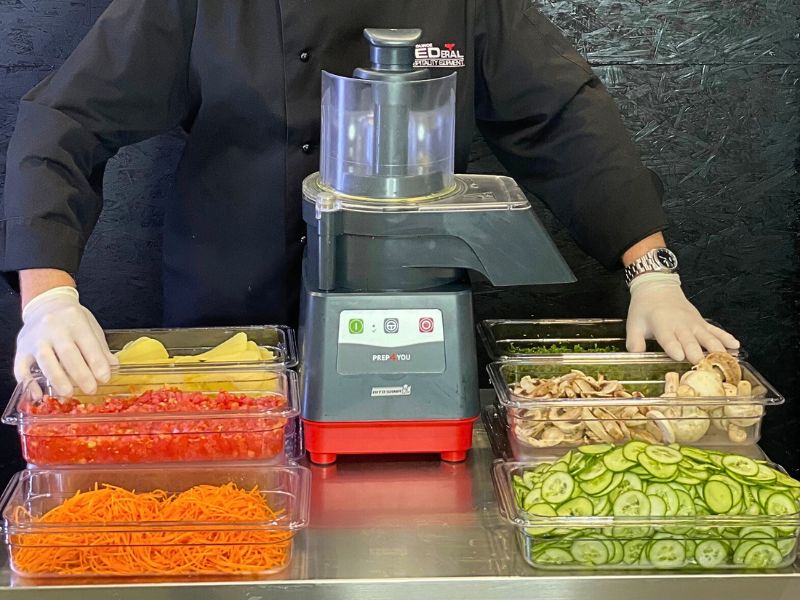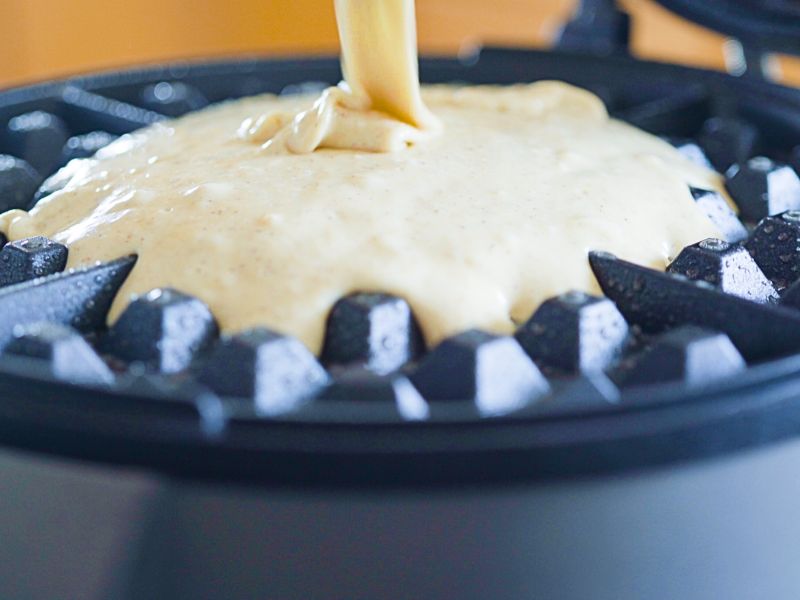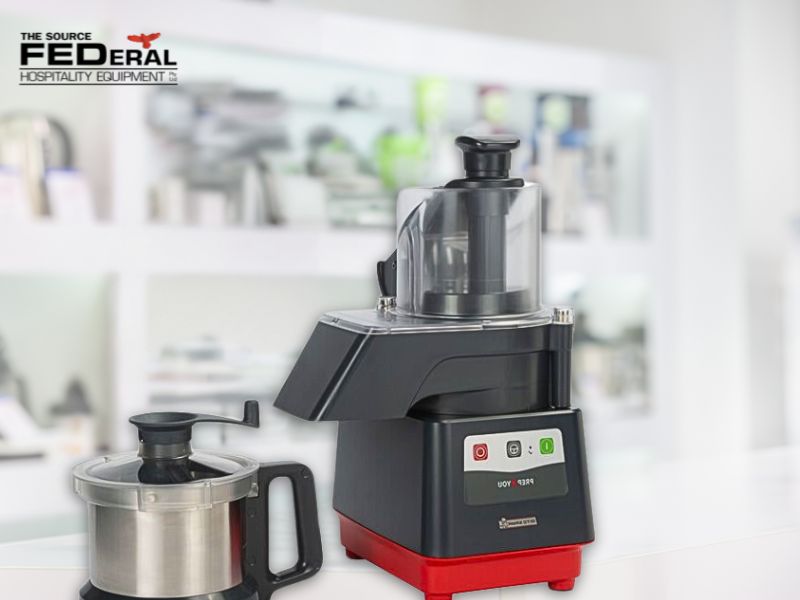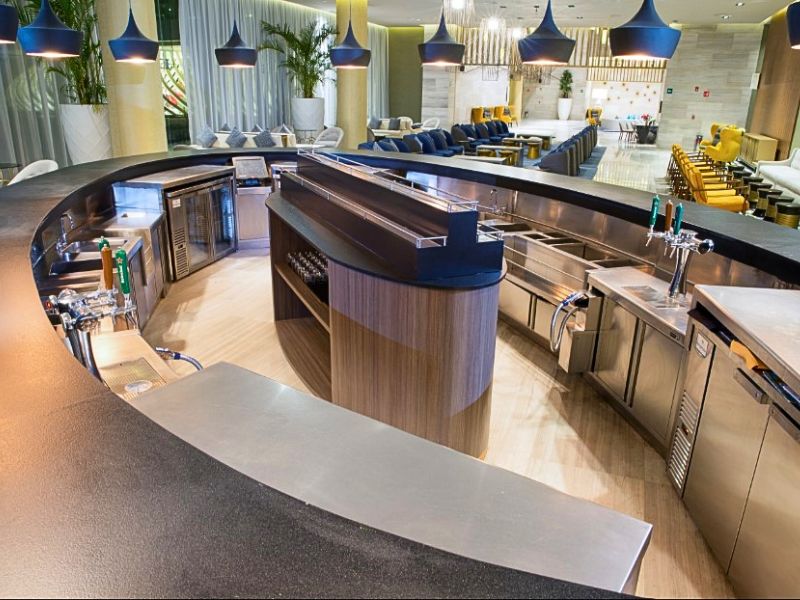Heavy duty deep fryers can serve your commercial kitchen for years to come. Different fryer types and burner configurations can suit many pieces of your menus. You need proper maintenance to extend the life and efficiency of your deep fryers.
Just like all your other kitchen equipment, your deep fryer needs care. Here’s a complete guide to help you out.
Benefits of maintaining your commercial deep fryer
Your commercial deep fryer is your best pal in crafting different dishes like mozzarella sticks, onion rings and chicken wings.
Whether you’re managing a small or a large commercial kitchen, thoroughly cleaning your deep fryer has these benefits.
Longer lifespan
Regularly maintained equipment can keep their optimal quality and even increase their lifespan. Through proper cleaning and maintenance, your deep fryer will be functional for a long time.
Grease and sticky films can affect your deep fryer’s overall performance. These elements turn into corrosives and cause severe damage to your commercial deep fryer. Discovering effective ways on how to wash them away can keep your fryer in a good working condition for years.
Reduced risk of kitchen failure
Kitchen equipment failure means your operation has to stop for hours or worse, for days. And this can cause lower revenue and unsatisfied customers. Regularly maintenance and getting a once a month professional inspection can help you avoid this type of problem in the future.
Maintained food quality
Your main goal is to provide high quality and good tasting food to your customers. If your commercial deep fryer is not properly maintained, it can compromise the quality of your dishes.
Regularly checking your restaurant fryer can lower the risk of grease, sticky films and other unwanted elements that can affect the taste of your dishes. You don’t want to make your mozzarella sticks taste like an onion because of some unnoticed food bits underneath your fryer basket.
Tips on how to maintain your commercial deep fryer
Soggy onion rings and chicken wings are boring. The best commercial deep fryer is meant to give your dishes additional flavors and that unbeatable crisp we all crave.
However, irregular maintenance can affect the taste and crunch you want to achieve in your deep fried foods.
Here are some tips to help you inspect and maintain your commercial deep fryer.
Do intensive cleaning at least once a week
While your kitchen staff maintains a clean workspace from time to time, schedule a once a week intensive cleaning to keep your commercial deep fryer in perfect condition. Inspect the surface underneath your tabletop or floor fryer to see if there are food bits and other residues formed.
Remove your basket and discard all used oils from the deep fryer. Wash the basket with dish soap and rinse it with warm water. You might also want to clean your walls to prevent grease from building up.
Seek help from a professional inspector.
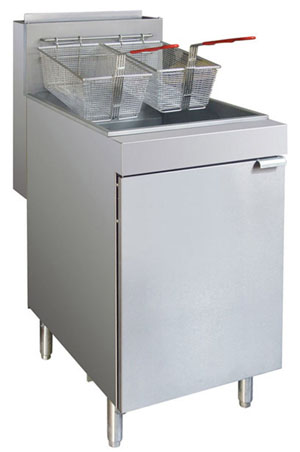
It’s easy to get caught up and lose track of the regular maintenance for your commercial deep fryer. Your kitchen staff probably makes sure everything is clean every after use, but monthly inspections should still be done. Get a professional inspector to check your deep fryer’s wirings, cords or if there’s an existing leak that needs to be fixed.
Hire a trusted company that can keep your commercial deep fryer in a good working condition to avoid any conflicts in the future. Professional inspectors can see issues you and your kitchen staff might not notice. Not only will it help you keep your kitchen clean and safe, it will also save you from potentially huge expenses.
Boil out your deep fryer at least every six months.
Fats build up as you use your commercial deep fryer regularly. Boil out your deep fryer from time to time to remove these residues out of your heating elements and tank.
These deposits can cause corrosion and affect the overall performance of your equipment. Oil will last longer if you boil out your fryer regularly which means you can save money from replacement expenses.
Drain all the oil and remove the remaining food bits using a fryer cleaning rod. Rinse the deep fryer with hot water to wash undrained fat away and fill it with cold water afterwards. Add a deep fat fryer cleaner and boil it for about 20 minutes before draining it slowly. Clean the sides, top and corners of the fryer with a brush then rinse it thoroughly.
After boiling it out, pour new oil and your deep fryer is ready to use again! This step is important so your fried dishes will keep their good taste and crunch.
Remove sticky film using baking soda and vinegar.
Baking soda never fails as a cleaning agent. And it’s a perfect cleaner to help you remove stubborn sticky films in your commercial deep fryer. Mix an ample amount of baking soda with water to make a thick paste. Rub a portion all over the greased parts using a sponge.
When all greased areas are covered with baking soda, let it stand for about 10-15 minutes. Wipe it off with a clean cloth or sponge and check if there are still sticky films left before rinsing it with water.
Aside from baking soda, vinegar is also an effective cleaner for commercial deep fryers. When cleaning your deep fryer basket, you can use a combination of vinegar and water, or vinegar and baking soda.
Soak it with the solution and scrub it with a sponge before rinsing it with water until fully cleaned. Through this method, you can get rid of any elements that can mix your oil and affect your food’s taste.
Fire preventive measures for deep fryers
Deep fryers involve a huge amount of oil so one wrong move can cause fire. When frying frozen goods, thaw them first. Too much hot oil combined with water can cause violent spattering and fire.
Same thing as avoiding spilling water over your deep fryer in case of a sudden fire. Water is a very dangerous element when it comes to deep frying.
Also, place your commercial deep fryer on a flat, stable surface so oil has no risk of spilling.
Take note of the thermostat control as well. If your deep fryer doesn’t have one, it’s not advisable to leave it unattended. Units that don’t have thermostat controls continue heating until it catches fire if not properly supervised.
Finally, hire a professional inspector to check your wirings and cords and determine if everything’s in top condition. Old and worn out wires can cause short circuits which can lead to fire and your kitchen staff might not have enough knowledge to discover and solve this issue.
Finding the right inspector for your deep fryer
Licensed kitchen appliance inspectors conform to local safety and sanitary codes. They also provide up-to-date inspection stickers for your equipment which can add to the credibility of your commercial kitchen. Here’s a quick guide on how to find the right inspector for your deep fryer.
Where to source a contractor
Start with your deep fryer manufacturer. They know all the ins and outs of your deep fryer and they are the most knowledgeable when it comes to intensively inspecting the equipment for any possible issue. Usually, it’s part of the equipment’s warranty.
If the manufacturer doesn’t offer a deep fryer service and inspection, they might recommend a local service contractor to inspect your deep fryer.
You can also find service contractors in your area. Check local forums online and look for service contractor recommendations. You can also check the reviews about your prospective contractor to see if they’re proficient in making sure your kitchen is safe.
What to expect in a kitchen appliance inspector
The annual inspection should only be done by a licensed and professional appliance service contractor. This inspection might include checking the inaccessible areas that might be dangerous for kitchen staff who don’t have enough knowledge about intensive maintenance.
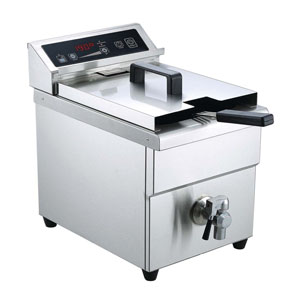
Here are some things you must expect in a kitchen appliance inspector.
- Make sure there’s no oil build up in both interior and exterior cabinet
- Check all the switches if they’re all functioning properly
- Inspect the piping lines and see if there’s a leak
- Verify the thermostat temperature and check if they’re tightened properly
- Check all burners, pilot lights, ignitors and gas lines.
These are just some of the services contractors usually offer. Failure to inspect these areas can lead to serious kitchen problems which can affect your overall performance. Schedule an inspection at least once a year to keep everything in good shape.
Final Takeaways
The process doesn’t just end in buying a heavy duty deep fryer. Just like other kitchen equipment, it takes proper and regular maintenance to keep its efficiency and effectiveness. This will help you maintain safety in your commercial kitchen while continuing to deliver high quality and great tasting food to your customers.
How’s your maintenance process so far? Follow these tips and create a checklist for your deep fryer maintenance!

